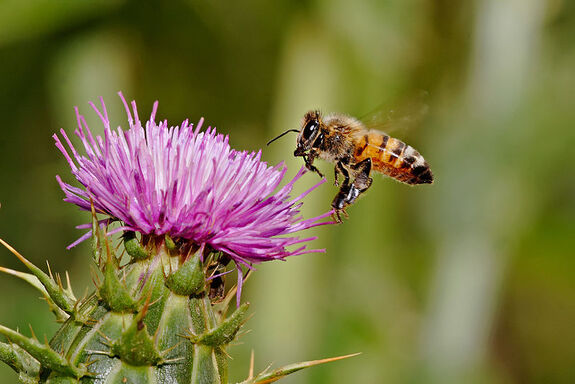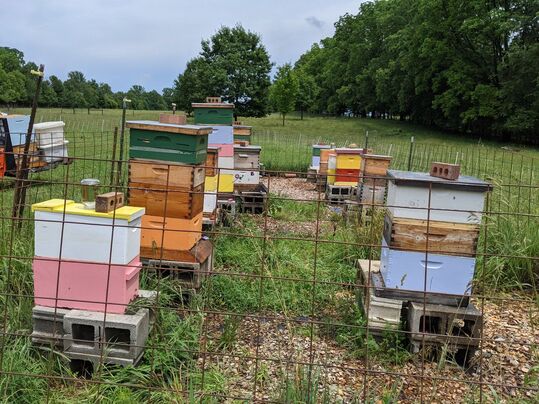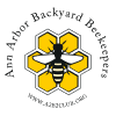 America Many people get into beekeeping to “save the bees,” and honey bees have become a vital part of our agricultural system, pollinating crops such as almonds, blueberries, and apples. Unfortunately, honey bees are not native to North America, so keeping honey bees to “save the bees” is a lot like keeping backyard chickens to help with the plight of the Kirtland’s Warbler. Worse, when uneducated beekeepers fail to manage their colonies properly, they spread pests and diseases to our native bees, doing harm instead of good. But… I am NOT saying that we shouldn’t keep honey bees. I enjoy keeping bees, love honey, and have no intention of giving that up. However, what I am saying is that there are much better things to do to “save the bees” than to become a beekeeper. These include, but aren’t limited to, planting native forage, never planting ornamental flowers, limiting or stopping the use of pesticides in your yard, encouraging your local government to plant community gardens of native plants, cutting down on the amount of lawn you have and replacing it with native plants, supporting bee-friendly farms, planting bee-friendly trees, and donating to organizations who support pollinator education and conservation. Consider Consider also that honey bees often compete with native bees for our dwindling floral resources. Since the 1930s, the United States has lost a staggering 97% of wildflower meadows, leaving little forage for our native bees. Additionally, honey bees are often attracted to invasive plant species such as star thistle, proliferating this noxious weed. More Information: https://www.nwf.org/Home/Magazines/National-Wildlife/2021/June-July/Gardening/Honey-Bees
0 Comments
Leave a Reply. |
AuthorJen Haeger is a new master beekeeper and board member of A2B2. Archives
August 2022
Categories
All
|


 RSS Feed
RSS Feed
